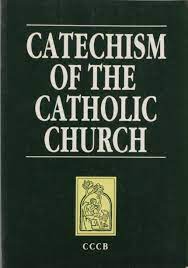Resisting the teaching of the Church: human rights, morals, secular culture
In Western Europe, we see that age-old religions are crumbling while others are infiltrating. Certainly, we are far from finished with the zealots of True Revealed Faith, which has the oddity of being plural. From it emerges the image of a God who hides, delivers contradictory messages and presents a dissociative identity disorder. The diversity of beliefs reveals that they are cultural constructions devoid of objective foundations. It is unreasonable to obey the propagandists of such an ill-defined God.
Why does man cling to so-called beliefs about the afterlife that are in fact beyond all plausibility? The answer is to be found between our two ears - O revelation -, that is to say in our brain. To be content with arguments of authority is a capitulation of the mind.
Religions work to dramatize existence: the eye of God that observes us, sin, Judgement Day, hell (or reincarnation into an inferior being), eternal life, ...
Religion does not provide access to inner peace, as it develops a rhetoric of intimidation that puts the faithful under pressure and demands more and more of them, without end. Whoever does not put up a defence is phagocytised.
Beware of a religion that sanctifies subjugation and obedience: believing will make us captives!
It is not enough to resist a little to avoid extremist drift; it is necessary to resist firmly to avoid the gears of subjection.
Being moderate in religion
It is generally accepted that, in religious matters, it is absolutely necessary to avoid becoming radical or extremist. Therefore, we must remain moderate and set barriers that must not be overcome. This implies distancing oneself from religion, making critical judgements, refusing to apply certain sacred texts literally, in short, developing a capacity for independence capable of standing up to the ease of servile obedience. It would be very imprudent to embark on religion without restraint and without being equipped with the means to brake.
What are these limits and how can they be defined? Since they cannot be based on religious values, they are necessarily human values. Common sense and empathy are respectable, but their contours are too blurred and ill-defined to be a reliable reference. I see only one barrier to religious aberrations: respect for human rights.
Religious values are therefore neither absolute nor fundamental. They can only be exercised within a secular framework that encompasses and is superior to it. In fact, our culture is only partially based on religious values drawn from antiquity. More essentially, it is based on secular values that appeared in the 18th century, such as human rights and modern democracy. Religious values must imperatively be subordinated to secular values. They can even be advantageously dispensed with.
It's curious: believers generally claim to be very far from extremism, because you can always find worse. However, religions teach that it is necessary to extricate oneself from softness and to show more commitment to the faith, in short that it is wrong to indulge in moderation.
«As long as we accept the principle that religious faith must be respected simply because it is religious faith, it is difficult to deny that respect to the faith of Osama bin Laden and the suicide bombers. The alternative, so obvious that it is useless to stress its urgency, is to abandon the principle of automatic respect for religious faith. This is one reason why I do my utmost to warn people about faith itself, and not just about so-called "extremist" faith. If they are not extremist in itself, the teachings of "moderate" religion are an open invitation to extremism.»
Richard Dawkins
What values should be opposed to barbarism?
How could the Church, which has organised several crusades against Muslims, condemn offensive wars? Is the miracle by which it preaches tolerance, when it has practised ruthless repression by the Inquisition, called "Do as I say, but not as I have done"? The ethical shortcomings are abysmal. The Church's credit rests on selective amnesia.
The question of the basis of values is crucial. For example, what values should be opposed to slavery? The question arises with regard to certain radical Islamist movements. Since the Catholic Church has, with an expansionist aim, supported slavery in the long term and accompanied the slavers, Christian values are inoperative in this context. It is necessary to appeal to secular values such as human rights.
The foundation of the values of the Western world is less in Christianity, as Christian propaganda claims, than in the values inherited from the Enlightenment and developed since then: human rights, democracy, individual freedom, the rule of law, separation of the state sphere from religious spheres, trust in reason, compulsory schooling for all, gender equality, freedom of expression, etc. More than any other cultural or religious values, these secular values are at the root of the success of Western civilisation.
The divine message is confused
Today, one third of the world's population is connected to Christianity to varying degrees. For a divine intervention as major as the coming of Christ, after 2'000 years of intense efforts including crusades, inquisition, religious wars, colonisation and countless conversions obtained by force, the result is disappointing.
From the point of view of those who believe in the Truth, two thirds of humans remain in ignorance or error. Moreover, Christians are divided, not to mention the degree of faith of each one. Providence and celestial marketing lack effectiveness. In the cacophony of beliefs, no religion takes the ascendancy and fails to impose itself by the evidence of its divine anchorage.
However, instead of judging the Revelation as a partial failure, I see it rather as a fable of human origin, which explains the impossible establishment of a single faith.
I don't complain about it, because the meaning of life, the same for everyone and dictated by a religion, doesn't attract me much.
The problem is not homosexuality, but the Bible
In 2015, the Bishop of Chur (Switzerland), Vitus Huonder, during a Catholic colloquium in Fulda (Germany), read and commented on this verse:
[Leviticus 20:13] If a man lies with a male as with a woman, both of them have committed an abomination; they shall surely be put to death; their blood is upon them.
As this contravenes Article 259 of the Swiss Penal Code, which condemns public incitement to crime, a criminal complaint has been lodged. Bishop Huonder was cleared by the Swiss justice system on the grounds that this call for murder should not be interpreted as having to be executed. Put more bluntly, the Bible can be taken more or less seriously, but not really. Respect for people comes first.
The Federation of Swiss Protestant Churches has opened the door to the introduction of religious marriage for homosexuals. It thus officially admits that certain verses must be ignored and that the Bible contains inconsistencies. However, from a contradiction, one can infer what one wants to infer. One effect of this is that homosexuality is still a problem among Catholics, whereas it is in the process of being accepted among Protestants. Since we cannot trust the Bible, we can consider that it was written without divine intervention by human beings who were not always inspired.
Homosexuality must be accepted as a natural phenomenon without grounds for discrimination. The problem is that the Bible advocates intolerance. A distance from religion helps to alleviate an illusory moral conflict.
Sin or the expression of an outdated divine pedagogy
The Catholic education I received puts a lot of emphasis on sin. Of course, on reflection, the notion of sin also covers acts that one has not done, for example not giving help to someone in need, but the first idea that comes to mind is that of prohibited acts, for example, certain acts of a sexual nature.
The Church encourages self-examination, which would be approved if it were not centred on shortcomings, errors, faults and sins. The notion of sin evokes guilt, punishment and suffering, making it negative, paralysing, unconstructive and destructive.
This way of looking at things does not at all correspond to my life experience that there is much more to be regretted among the things one has not done than among the things one has accomplished. It seems more constructive to me to focus my self-examination on what I could do right, to look to the future rather than the past.
This is also the direction that modern pedagogy has taken, in opposition to the traditional teaching of the Church.
Catholicism is not a religion like any other
In the majority of religions, the clergy plays only a facilitating role, a useful but optional one. On the contrary, in Catholicism, through the sacraments and the Mass, the clergy plays the role of an indispensable intermediary from which it derives (or at least drew) reinforced authority. An authentic Catholic cannot pretend to make a direct arrangement with God.
Revolution in the Kingdom of Heaven
«The doctrine of the chosen people is undoubtedly a product of the tribal form of society.»
Karl Popper, Open Society and its enemies
The Kingdom of Heaven is an idealization of the Hebrew kingdoms. An essential part of heavenly bliss certainly lies in the feeling of feeling among one's own people. As for divine contemplation, it irresistibly evokes the privilege of witnessing the Sun King's (Louis XIV) little rising. But the most important thing is yet to come.
On the one hand, spending eternity there seems to me to be too long; I, who can hardly stand shows lasting more than three hours, am afraid of being terribly, endlessly bored. Perhaps the afterlife is not idyllic.
Secondly, and above all, I deplore the fact that this is a kingdom: to achieve happiness, I absolutely need my intellectual autonomy and freedom of thought. I shall hasten to demand a heavenly democracy. May the King abdicate! Long live the republic!
But will I get permission to create a secular party? The Kingdom of Heaven causes me a lot of trouble ... and loses many of its attractions. Immortality thus seems to me hardly desirable.
Prayer
The prayer consists in entrusting a task to "someone who manages" - a super-contractor of problems - which brings a feeling of relief and appeasement.
However, as the proverb "Help yourself and Heaven will help you" rightly points out, it is more effective to deal with problems yourself by taking appropriate action. In a more secular reformulation, it is necessary to take the time to organise one's life, which also brings - more constructively than prayer - relief and appeasement. And above all, the success rate is better.
A parallel can be drawn between European Catholicism and Royalism
A large part of the Swiss population claims to be Catholic but does not practise it. In the fact that the label does not correspond to the content, I see an analogy with politics in the United Kingdom: attachment to royalty is popular, but democracy in a modern form is practised. For a large part of the population, Christian religions are empty shells that can be decorative.
From the clan to the defence of its community
The tendency of primitive societies to group themselves into clans continues today by regrouping into communities. The aim is to cultivate feelings of belonging to ethnic, cultural, political or religious communities by drawing a clear boundary between members and others.
This state of mind is cultivated by religions. Loyalty and fidelity to the community are cardinal virtues according to which, if one is born into the community, it would be a betrayal to stray from it. A characteristic of "clan culture" is to restrict individual freedom in favour of "the best interests of the community".
The relationships to be favoured are those between members of the community, the others should be reduced to what is necessary and useful. One example: an inter-religious marriage is a waste to be avoided.
The communitarian spirit tends to lead to a bias: "all human beings are equal, especially those who are like us, while others are a little less ".
Beyond the lack of love for the Churches
In commenting on the de-Christianisation of our society, the lack of love for the Christian Churches is often mentioned. In my opinion, the disenchantment is much deeper.
In order to be taken into consideration, an ideology or religion must satisfy at least the following three conditions: it must agree with the established facts, be coherent and respect human rights. What about Christianity?
For the need to be in tune with the real world, the Bible, especially Genesis, is in profound contradiction with history, be it that of the universe, of the earth, of life and of man.
For the requirement of internal coherence, Christianity contains major contradictions. For example, damnation and Hell are incompatible with the precept of forgiving one's enemies. Indeed, God punishes with eternal, and therefore disproportionate, punishment. Above all, he asks to forgive his enemies, but does not forgive everyone. Other inconsistencies can be pointed out, such as the homophobic verse "Leviticus 20:13".
For the third requirement, if the Catholic Church says it accepts human rights, it does not respect their spirit. For example, it denies women equality extended to priestly functions.
Thus, the reasons for rejecting Christianity go far beyond a simple dislike for institutions and touch the very heart of the faith.




Comments
Post a Comment